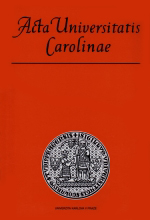Dělba, moci, funkcí nebo rolí. Několik úvah nad odkazem Ch. Montesquieua
Separation of Powers, Functions or Roles (or, How Do We Read Montesquieu, Today)
Author(s): Jana ReschováSubject(s): Law, Constitution, Jurisprudence
Published by: Univerzita Karlova v Praze, Nakladatelství Karolinum
Keywords: Ch. Montesquieu; separation of powers; separation of functions; separations of roles
Summary/Abstract: Today, no one doubts about one of the fundamental principle of modern constitutions, to which the Czech constitution of 1992 (as well as many akin constitutions) have adhered. Despite of the general acceptance of the principle, it became harder to put it into practice. It is worth then to trace back legitimate expectations derived from the separation of powers principle, and to find out whether rigidity (as sometimes forwarded in practice) does not expose the ultimate functionality of the institutions to a risky blockage. Blockage constructed upon a rigid understanding of the usage of “checks” that ultimately brakes the “balances”. The integrity of the system is to be interpreted rather than from a static power description (that was useful and needed during the institution-building period), from the functional prospect, as today. If powers are to be legitimately and than rightly executed, if they are to be efficient in the dynamic of the working constitution, they should be closely linked to separate functions and roles as assumed and played by political actors. Since vague and unclear division of functions and roles of office-holders after 1989 was in place, the constitutional principle itself could not have been fully introduced into political practice, that has been for many years lacking efficient legal means of protecting “common sense”.
Journal: Acta Universitatis Carolinae Iuridica
- Issue Year: 56/2010
- Issue No: 2
- Page Range: 109-118
- Page Count: 10
- Language: Czech

